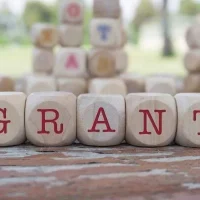International donor agencies play a pivotal role in the global landscape of non-governmental organizations (NGOs). These agencies, often funded by governments, private foundations, or international organizations, provide essential financial resources and technical assistance to NGOs working on various social, economic, and environmental issues. Their support is crucial for NGOs, especially those operating in developing countries where local funding sources may be limited.
By bridging the gap between available resources and the pressing needs of communities, donor agencies empower NGOs to implement impactful projects that can lead to sustainable development and social change. The relationship between donor agencies and NGOs is symbiotic; while donor agencies seek to fulfill their missions of promoting development and humanitarian aid, NGOs rely on these funds to execute their programs effectively. This dynamic creates a network of collaboration that can address complex global challenges such as poverty alleviation, education, health care, and climate change.
Understanding the landscape of international donor agencies is essential for NGOs seeking funding opportunities, as it enables them to align their missions with the priorities of potential funders.
Criteria for Selecting Donor Agencies
When NGOs seek funding from international donor agencies, it is crucial to consider several criteria that can influence the selection process. First and foremost, alignment of mission and objectives is vital. NGOs should thoroughly research donor agencies to ensure that their goals resonate with the agency’s focus areas.
For instance, an NGO dedicated to environmental conservation should target agencies that prioritize climate action or biodiversity preservation. This alignment not only increases the chances of securing funding but also fosters a more meaningful partnership. Another important criterion is the agency’s funding history and reputation.
NGOs should investigate past projects funded by the agency to gauge its commitment to specific causes and its track record in supporting successful initiatives. Additionally, understanding the agency’s funding mechanisms—whether they provide grants, loans, or technical assistance—can help NGOs tailor their proposals accordingly. Transparency in the agency’s operations and decision-making processes is also a key factor; NGOs should seek out agencies known for their clear communication and fair evaluation processes.
Top 10 International Donor Agencies Supporting NGOs Worldwide
1. The United Nations Development Programme (UNDP): As a leading global development organization, UNDP provides financial and technical support to NGOs working on sustainable development goals (SDGs) across various sectors. 2. The World Bank: Known for its extensive funding capabilities, the World Bank supports projects aimed at reducing poverty and promoting economic development through grants and loans. 3. The European Union (EU): The EU offers numerous funding opportunities for NGOs through its various programs focused on human rights, democracy, and sustainable development. 4. The Bill & Melinda Gates Foundation: This private foundation is renowned for its commitment to global health and education initiatives, providing substantial grants to NGOs working in these areas. 5. The Ford Foundation: With a focus on social justice, the Ford Foundation supports NGOs that advocate for human rights, economic fairness, and community empowerment. 6. The Open Society Foundations: Founded by George Soros, this network of foundations funds initiatives that promote democracy, human rights, and social reform worldwide. 7. The Global Fund: This international financing organization focuses on combating AIDS, tuberculosis, and malaria, providing grants to NGOs involved in health-related projects. 8. The Rockefeller Foundation: Known for its innovative approaches to global challenges, the Rockefeller Foundation supports initiatives in health, food security, and climate resilience. 9. The International Monetary Fund (IMF): While primarily focused on economic stability, the IMF collaborates with NGOs on projects that promote sustainable economic growth in developing countries. 10. The Asian Development Bank (ADB): ADB provides financial assistance for development projects in Asia, often partnering with NGOs to implement initiatives that address regional challenges.
The Role of Donor Agencies in Funding and Supporting NGOs
Donor agencies serve as critical enablers of NGO activities by providing not only financial resources but also capacity-building support. Funding from these agencies allows NGOs to launch new projects, expand existing programs, and reach underserved populations. Moreover, many donor agencies offer technical assistance that helps NGOs enhance their operational efficiency and effectiveness.
This support can include training in project management, monitoring and evaluation techniques, and strategic planning. In addition to direct funding, donor agencies often facilitate networking opportunities for NGOs. By connecting organizations with similar missions or complementary expertise, donor agencies foster collaboration that can amplify the impact of individual projects.
Furthermore, these agencies may advocate for policy changes at national or international levels that benefit the sectors in which NGOs operate. This multifaceted support system enhances the overall capacity of NGOs to address pressing social issues and achieve their objectives.
Impact of Donor Agency Support on NGOs
The support provided by donor agencies can have a transformative impact on NGOs and the communities they serve. Financial backing enables organizations to implement innovative solutions to complex problems, leading to improved outcomes in areas such as education, health care, and environmental sustainability. For instance, an NGO focused on improving maternal health may use donor funds to establish clinics in remote areas, ultimately reducing maternal mortality rates and enhancing community well-being.
Moreover, donor agency support often leads to increased visibility and credibility for NGOs. When organizations receive funding from reputable donor agencies, it signals to other potential funders and stakeholders that their work is valued and impactful. This recognition can open doors to additional funding opportunities and partnerships, creating a ripple effect that enhances the NGO’s capacity to effect change.
Ultimately, the support from donor agencies not only empowers NGOs but also contributes to broader societal progress.
Challenges Faced by Donor Agencies and NGOs in Collaboration
Misaligned Priorities
Despite the potential benefits of collaboration, a significant issue arises when the priorities of donor agencies and NGOs do not align. Donor agencies may have specific agendas or timelines that do not consider the grassroots realities faced by NGOs. This disconnect can lead to frustration on both sides and may result in projects that do not adequately address local needs.
Bureaucratic Barriers
Bureaucratic processes within donor agencies can create obstacles for NGOs seeking funding. Lengthy application procedures, stringent reporting requirements, and rigid funding guidelines can overwhelm smaller organizations with limited administrative capacity.
Competition and Fragmentation
Furthermore, competition among NGOs for limited funding can lead to a fragmented approach to addressing social issues. Organizations may prioritize securing grants over collaboration or shared learning, ultimately hindering collective progress.
Successful Case Studies of Donor Agency-NGO Partnerships
Several successful case studies illustrate the positive outcomes that can arise from effective partnerships between donor agencies and NGOs. One notable example is the collaboration between the Global Fund and various local health organizations in sub-Saharan Africa. By providing substantial financial resources and technical support for HIV/AIDS prevention programs, this partnership has significantly reduced infection rates and improved access to treatment for millions of individuals.
Another compelling case is the partnership between the Bill & Melinda Gates Foundation and educational NGOs in India. Through targeted funding initiatives aimed at improving literacy rates among marginalized communities, this collaboration has led to innovative educational programs that have transformed learning outcomes for thousands of children. These success stories highlight how strategic partnerships can leverage resources effectively to create lasting change in communities around the world.
Conclusion and Future Trends in Donor Agency Support for NGOs
As the landscape of global philanthropy continues to evolve, so too will the role of donor agencies in supporting NGOs. Future trends indicate a growing emphasis on collaboration and co-creation between donors and recipients. Donor agencies are increasingly recognizing the value of engaging with local communities and incorporating their insights into project design and implementation.
This shift towards participatory approaches will likely enhance the relevance and effectiveness of funded initiatives. Moreover, technology is poised to play a significant role in shaping future donor agency-NGO partnerships. Digital platforms for fundraising, project management, and impact measurement are becoming more prevalent, enabling organizations to streamline operations and enhance transparency.
As donor agencies adapt to these changes, they will likely seek innovative ways to support NGOs in navigating an increasingly complex funding landscape. In conclusion, international donor agencies are vital partners for NGOs striving to make a difference in their communities. By understanding the criteria for selecting donors, recognizing top funding sources, and navigating challenges collaboratively, NGOs can maximize their potential for impact while contributing to global development goals.
As we look ahead, fostering strong relationships between donor agencies and NGOs will be essential for addressing pressing social issues effectively and sustainably.





![Call for Applications: “Voices in Motion” Program [Sri Lanka] - fundsforNGOs Call for Applications: “Voices in Motion” Program [Sri Lanka]](https://www2.fundsforngos.org/wp-content/uploads/2023/04/dance-200x200.jpg)



































